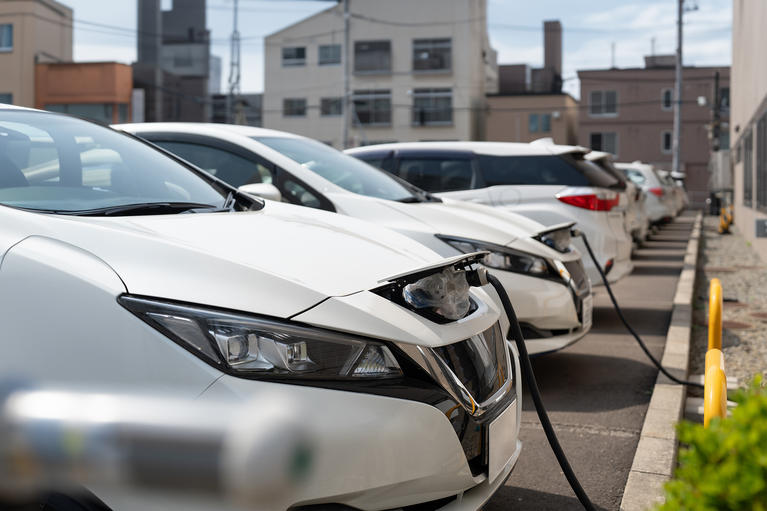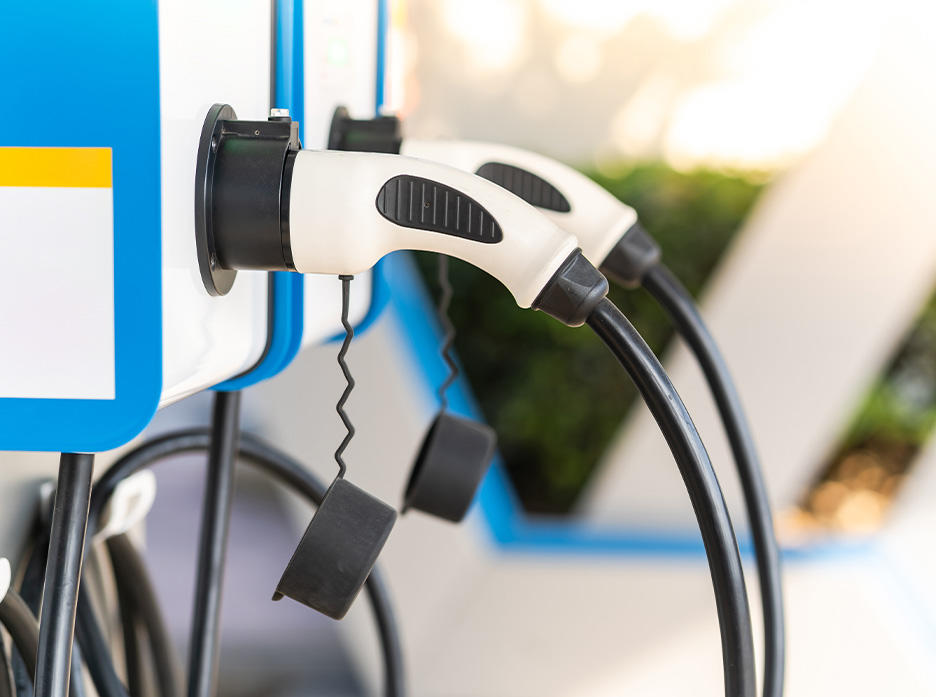
Local Government EV Charging Permitting
Local Government EV Charging Permitting
Encouraging local governments to adopt land use codes for a more streamlined EV charging permitting process.
Contact Information:
Julia Ettelman, julia.ettelman@state.co.us
Background
The 2023 Colorado EV Plan estimates that Colorado needs about 7,500 electric vehicle (EV) charging ports by 2025 to achieve our EV goals. To enable this robust charging network, local governments may need to adjust their permitting processes to facilitate this new type of land use. To support local governments in this work, the Colorado Energy Office (CEO) held a series of meetings with local governments and charging developers in 2023 to discuss permitting challenges and solutions and published the findings in a study.
View EV Charging Permitting Study
By December 31, 2025, many Colorado local governments will need to take action to comply with state law regarding local permitting of EV charging projects. CEO will provide technical assistance and training to help local governments comply with the law.

Electric Vehicle Charging System Permits Law
In 2024, Colorado passed the Electric Vehicle Charging System Permits law (HB24-1173) in 2024. This law encourages local governments to adopt land use permitting processes and standards for public charging projects to foster more streamlined, transparent, and consistent permitting processes.
Municipalities with 10,000 or more people and counties with 20,000 or more people as of the 2020 Federal Census are required to take at least one of the following compliance actions by December 31, 2025:
- Adopt the permitting processes and standards from the EV Charging Model Land Use Code developed by CEO;
- Adopt the permitting processes and standards prescribed by HB24-1173;
- Adopt an ordinance or resolution stating that the local government does not wish to change its existing land use codes and opts out of revising its codes.
Subject jurisdictions are also required to submit two reports to the Colorado Energy Office.
- Compliance Report: By March 1, 2026, a report that confirms the compliance action completed (i.e. which of the three compliance options outlined above the jurisdiction has implemented).
- Outcomes Report: By January 31, 2027, a report that outlines the permitting durations and final decision for each EV charging development application received between December 31, 2025 and December 1, 2026.
View list of local governments subject to the lawView HB 24-1173 Compliance Reporting GuidanceSubmit your compliance report through the HB24-1173 Compliance Report Portal
EV Charging Model Land Use Code
In coordination with representatives from local governments, disproportionately impacted communities, electric utilities, and other stakeholders, CEO has developed an EV Charging Model Code as required by HB24-1173. The code includes recommended land use permitting standards and processes and guidance to help local governments integrate its recommendations into their existing land use codes.
View EV Charging Model Land Use Code
Local governments may use the Model Code to comply with the law or as a resource to update their land use regulations to streamline the EV charging permitting process and support EV charging in their communities.
Support for Local Government Model Code Adoption
CEO will support local governments with Model Code adoption and implementation. CEO will offer code adoption support and staff training.
Request code adoption support and sign up for training
Code Adoption Support
Beginning in July 2025, CEO will provide on-call land use code adoption support to local governments through a land use code consultant, who will be available to help local governments adopt the Model Code into their existing land use codes. Local governments may request a variety of types of support, such as:
- Review of existing local government codes to identify appropriate locations to integrate model code standards
- Suggested revised code language
- Guidance on messaging for the general public, local government staff, and elected officials to support acceptance and adoption of codes
- Attendance at local government staff and/or elected body meetings
This support is primarily for local governments that are planning to adopt the model code in order to comply with the Electric Vehicle Charging System Permits law. Support is also available for local governments making significant changes to their land use regulations to improve EV charging permitting.
Staff Training
CEO has prepared staff training materials to help local government planning staff learn how to interpret and apply the permitting standards and processes of the model code to EV charging projects, including a training manual, a FAQ, and a training webinar.
New Technical Training Opportunity!
CEO is offering a new, no-cost training opportunity for local governments who have complied with HB24-1173 through adoption of the Model EV Charging Land Use Code or the statutory adoption path. The purpose of this opportunity is to assist your local plan review team in interpreting and applying your new regulations to EV charging permit applications. This new opportunity has two options:
- Virtual Team Training Session: A facilitated 1-2 hour virtual meeting with local plan review/permitting staff. Content will be customized to your local permitting context and will include an overview of the new land use regulations and processes, as well as a hypothetical permit application review.
- Interpretation Questions: Have a specific question about interpreting your new regulations or processing an application? We're here to help via email or phone call on an as-needed basis.
If you're interested in scheduling a virtual team training or have an interpretation question you'd like to discuss, please reach out to Avery Wolfe (awolfe@migcom.com) and Julia Ettelman (julia.ettelman@state.co.us). We'll get back to you as soon as possible to address your request.
EV Charging Model Land Use Code Training Manual
The Training Manual covers topics such as basics of EV charging projects; benefits to local governments of adopting the model code; types of permitting standards and processes required by the model code; guidance on adopting the model code into existing land use codes.
View the EV Charging Model Land Use Code Training Manual
EV Charging Model Land Use Code FAQs
The FAQ answers common questions about compliance with HB24-1173 and about adopting the Model Code. The FAQ will be updated regularly and include additional frequently asked questions.
View the EV Charging Model Land Use Code FAQs
EV Charging Model Land Use Code Webinar
CEO hosted a webinar to help local government staff understand more about the Model Code, the benefits of adopting it, and how to integrate it into existing land use regulations.
View webinar slides and discussion summary
Implementation Timeline:
- March 31, 2025: CEO published the model code guidance
- Summer 2025 - End of 2025: CEO to provide on-call code adoption support and staff training to local governments
- December 31, 2025: Local governments subject to the law to complete compliance action
- March 1, 2026: Local governments subject to the law to submit compliance reports to CEO
